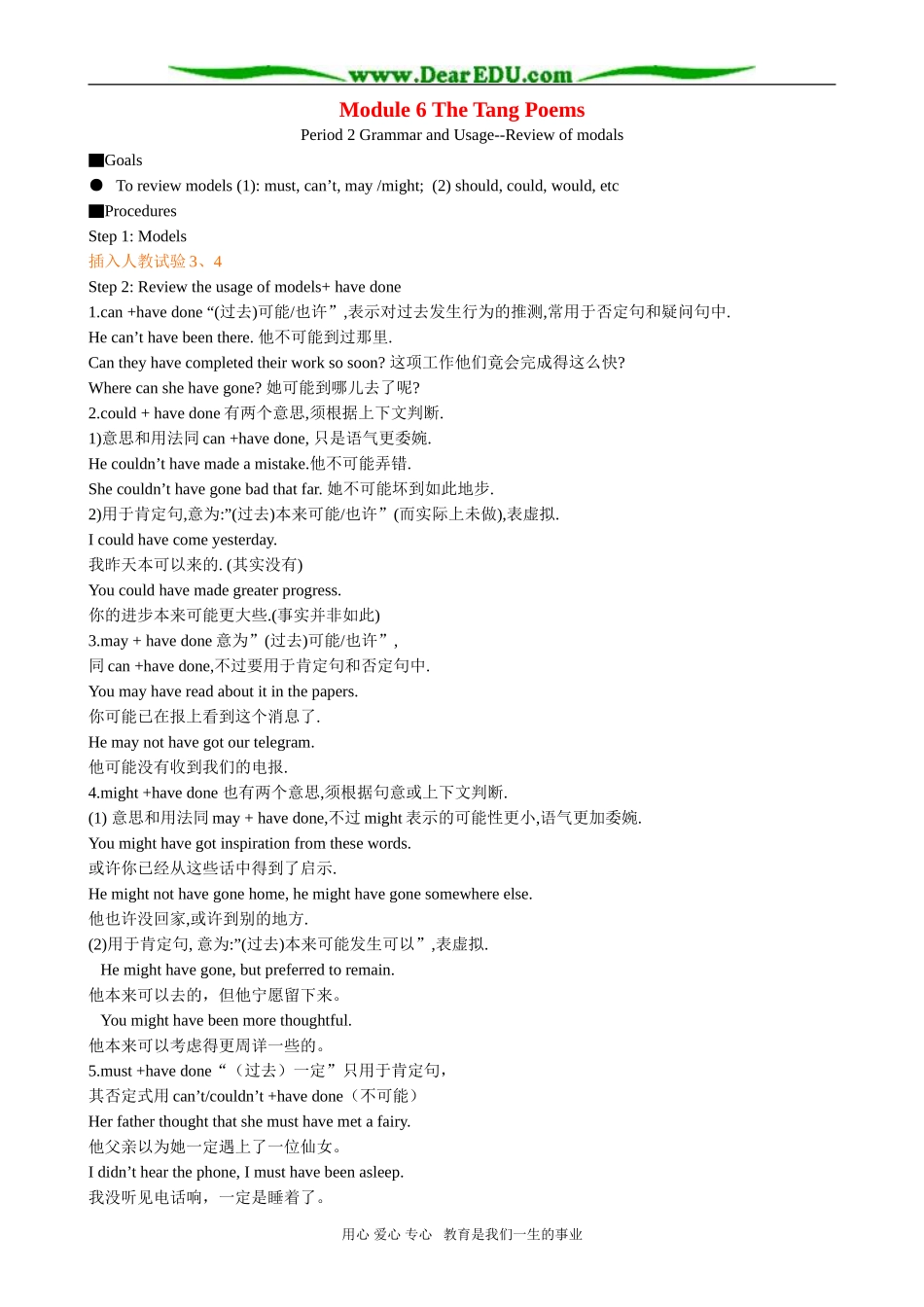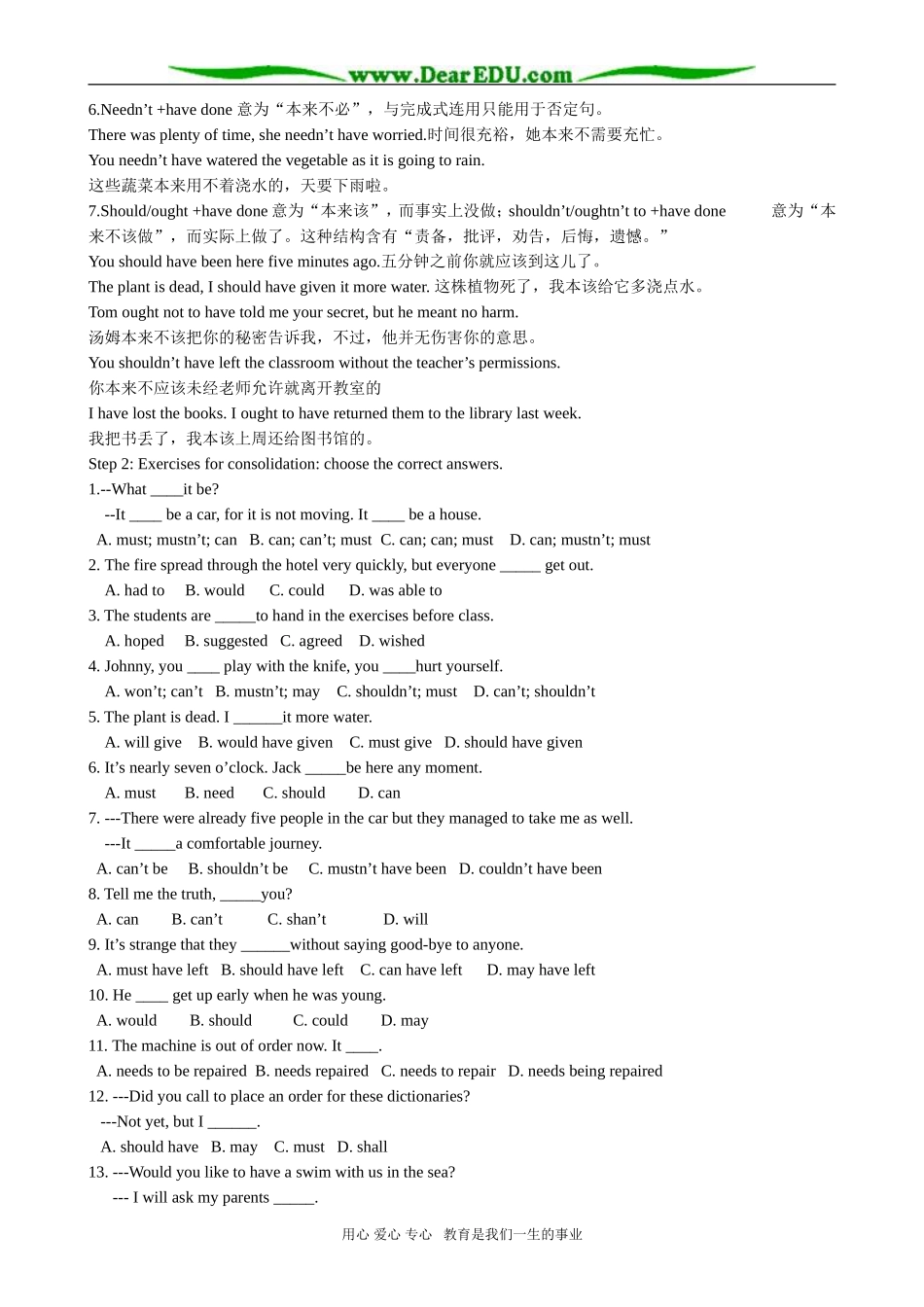Module 6 The Tang PoemsPeriod 2 Grammar and Usage--Review of modals▇Goals● To review models (1): must, can’t, may /might; (2) should, could, would, etc▇ProceduresStep 1: Models插入人教试验 3、4Step 2: Review the usage of models+ have done1.can +have done “(过去)可能/也许”,表示对过去发生行为的推测,常用于否定句和疑问句中.He can’t have been there. 他不可能到过那里.Can they have completed their work so soon? 这项工作他们竟会完成得这么快?Where can she have gone? 她可能到哪儿去了呢?2.could + have done 有两个意思,须根据上下文判断.1)意思和用法同 can +have done, 只是语气更委婉.He couldn’t have made a mistake.他不可能弄错.She couldn’t have gone bad that far. 她不可能坏到如此地步.2)用于肯定句,意为:”(过去)本来可能/也许”(而实际上未做),表虚拟.I could have come yesterday. 我昨天本可以来的. (其实没有)You could have made greater progress.你的进步本来可能更大些.(事实并非如此)3.may + have done 意为”(过去)可能/也许”,同 can +have done,不过要用于肯定句和否定句中.You may have read about it in the papers. 你可能已在报上看到这个消息了.He may not have got our telegram. 他可能没有收到我们的电报.4.might +have done 也有两个意思,须根据句意或上下文判断.(1) 意思和用法同 may + have done,不过 might 表示的可能性更小,语气更加委婉.You might have got inspiration from these words.或许你已经从这些话中得到了启示.He might not have gone home, he might have gone somewhere else.他也许没回家,或许到别的地方.(2)用于肯定句, 意为:”(过去)本来可能发生可以”,表虚拟. He might have gone, but preferred to remain.他本来可以去的,但他宁愿留下来。 You might have been more thoughtful. 他本来可以考虑得更周详一些的。5.must +have done“(过去)一定”只用于肯定句,其否定式用 can’t/couldn’t +have done(不可能)Her father thought that she must have met a fairy.他父亲以为她一定遇上了一位仙女。I didn’t hear the phone, I must have been aslee...


